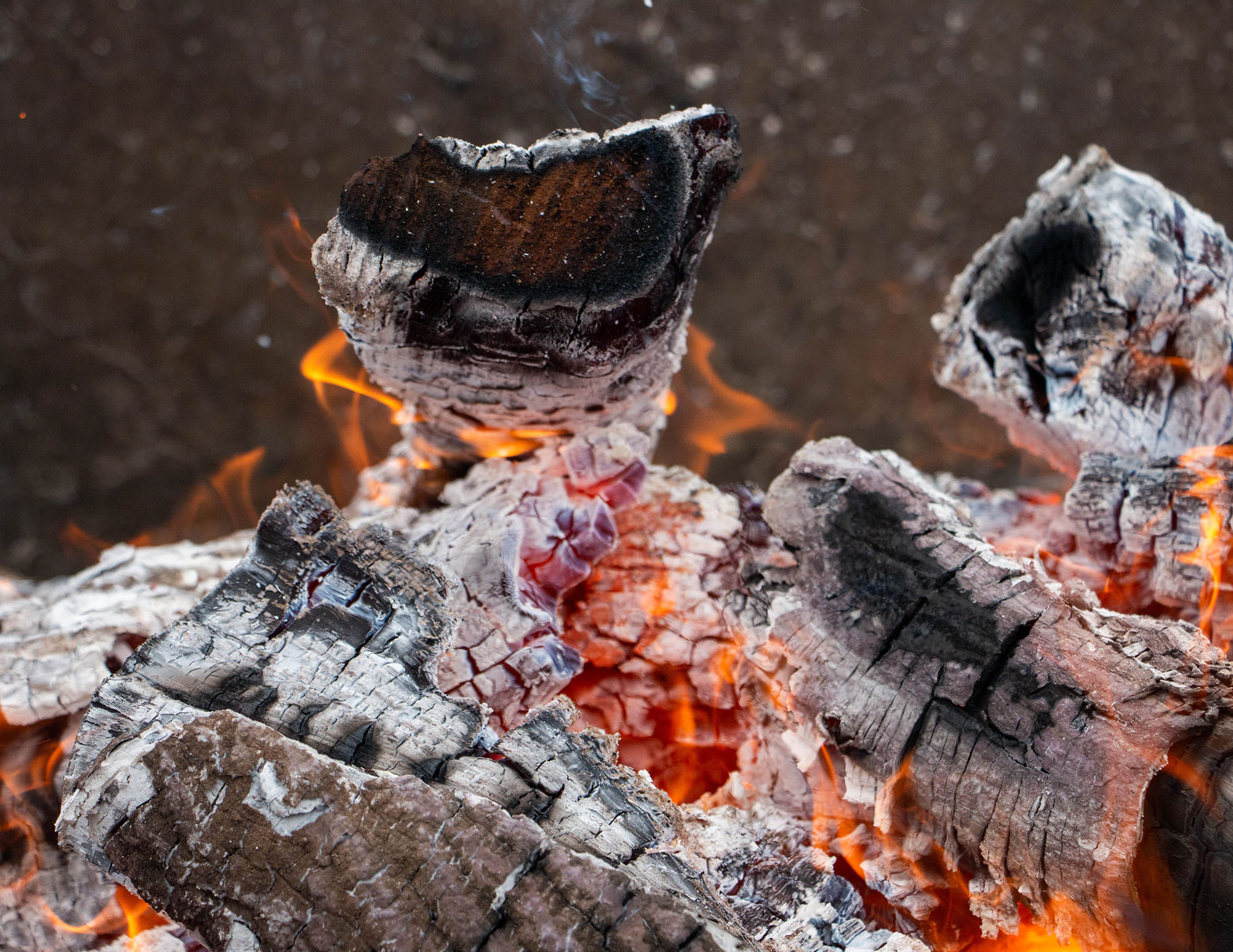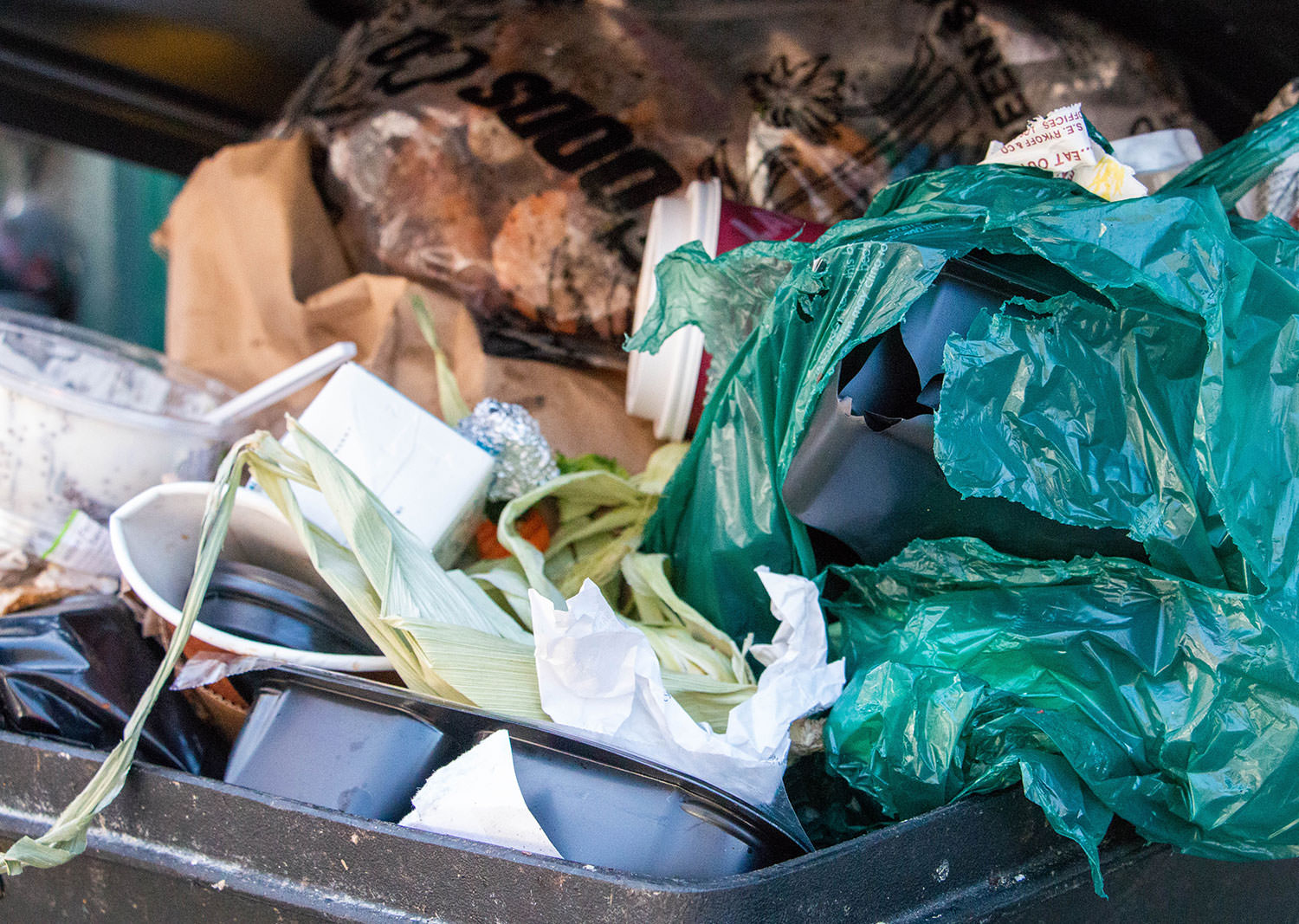
The traditional way of thinking about hell is to see it as a terrifying place of separation from God that we hope to avoid (and help others avoid) at all costs. Is there a more hopeful way of understanding hell? Is it possible that hell might even be something to be thankful for?
Growing up in a conservative Christian household, I saw Hell as the final punishment of a long escalating list of disciplinary options. To hear my evangelical Chinese American parents tell it, a fiery eternity was the greatest argument to keep a young kid in line and out of trouble.
According to their home-school parenting books and Focus on the Family magazines, it was far safer to err on the side of literally scaring the Hell out of one’s children than to fall into moral complacence and risk a flirtation with the devil. This moral caution cast a wide net around juvenile delinquency: from smoking cigarettes and underage dating to the potty-mouthed Bart Simpson and the South Park kids. This wide spectrum of inadvisable behaviors were presented as steps down the “slippery slope” to the bottomless pit.
• • •
During my senior year of high school, following a period of depression, I had a personal encounter with Jesus Christ and subsequently made a commitment to Christian faith. As I embarked on my religious journey, the threat that had once been deployed to keep a young child in line morphed into a motivation for outreach. Heartbroken to think that my peers might suffer eternal separation from God, I determined to be steadfast in my attempts to share the Gospel with them.
In evangelism classes run by well-intentioned campus ministry leadership, I was taught that an effective way to do this was by shoehorning mentions of the afterlife (“Do you know where you’re going after you die?” “Are you sure?”) into casual conversations over lunch and in the library.
It was a hell of a recruitment pitch. Looking back, I cringe to think about several conversations from this time. I definitely owe apologies to some college friends for blunderingly offensive overtures. Despite the best of intentions, I now see that bringing up eternal damnation as a means to initiating a heart-to-heart conversation was tone deaf at best, and at worst, spiritually manipulative or abusive. I can understand why many — Christians, non-Christians, and ex-Christians alike — find the mention of Hell a reliable conversation-ender.
But what if there’s another conversation to be had about Hell, one that I’d been overlooking throughout my childhood and young Christian life?
The primary questions I asked were of destination: “Am I in or out?” “Will you wind up there — or in the other place?”
But what if I’d been asking the wrong question all along? Why had I never thought to ask a question I should have led with to start:
What is Hell?
The Hebrew words translated in the Christian Scriptures as “Hell” are gehenna and sheol. The former is a word used to refer to a trash fire or a place of child sacrifice; the latter, a family tomb or gravesite. The Greek words, meanwhile, are hades and Tartarus, the former referring to the state of bodily death, and the latter (which occurs only once in Scripture, in 2 Peter 2:4) to an eternal torture chamber, a place for the treacherous Titans to be punished for their rebellion against Zeus.

In my own Christian circles, the most common description of Hell I heard was as a place of eternal conscious torment. Much of this understanding is drawn from the Italian-European imagination of Dante Alighieri, author of “The Inferno”. In this work of sociopolitical commentary, the underworld was a place of scale balancing, where sinners, liars, heretics, and traitors could be meted out perpetual punishment in proportion to their immorality.
Dante’s lurid vision of a chamber of eternal torments evokes the Greek Tartarus-afterlife. Its promise of eternal agony for the wicked could be an immense comfort to those who have suffered grave injustice. For the genocide survivor, the abused spouse, or the trafficked child, I imagine a great deal of comfort might be felt in knowing that the perpetrators of these evils will face judgment from a just judge and protective creator.
But while I understand the power of human choice and self-determination, I also understand that patterns of hurt rarely originate from nothing. These behaviors are learned, inherited, and acquired as coping mechanisms or ugly “gifts” from absentee parents and abusive environments. Who is to blame for gang violence in Los Angeles? Gang leaders? An underfunded school system and the administrators and politicians who run it? Media companies that push images of violent, criminal young men of color? Private prison companies that profit from institutionalized bodies? The poor choices of individual boys and girls?
All of the above?
Whether understood as original sin or total depravity, there is a rich tradition of Christian theology understanding that the fundamental forces of evil with which we wrestle have been in motion long before our time. We know that every bit of this world, its history, and all the human souls within it are partially flawed; no person, organization, nation, or movement has ever been perfectly good (apart from one notable exception).
But if everything is partially evil, this also implies that everything is partially good. As a mentor once explained to me, “total depravity doesn’t mean that everything is as bad as it could possibly be — it means that nothing is as good as it should be.” And if wickedness is not a binary situation with a switch to flip, but instead, a journey from hurt to hope, then it seems to follow that no person or situation is without a spark of redemptive possibility.
So what if the question isn’t “Am I going to Hell?” — but rather, “What parts of me are?”
The Hope of Hell
People were created in the image of God: a good, creative, conscious, powerful, communal, eternal being.
At some point early on in human history, we used our creative power and free will to embrace a false understanding of self, a perversion of the goodness and character of God. All people now go through life as odd God-hybrids: our true selves tasting the goodness of God in sunsets and in our stomachs while our false selves are occupied with reliving and inflicting the bitterness of abandonment, abuse, neglect, hatred, and insecurity. Our God-natures drive us to love, to sacrifice, to give and receive; our false-natures drive us to take, to seize, to reject and withdraw.
What if Hell is a sort of spiritual chemotherapy, killing off the mutated false-selves so that the true God-self can continue to grow free and healthy as intended?
Who am I as God made me to be? What if I weren’t addicted to binge-watching TV shows online? What if I were less lazy? What if my fear of poverty were to die, and I could instead be free and gracious with my emotional energy and time?
Now, nothing is stopping me from doing precisely that right now. With some discipline and self-control, I could cast off all the burdens I just listed. But what if — just like how we sometimes experience the presence of Heaven in prayer, Scripture reading, or fellowship — we get a preview of Hell every time we cast off an old hang-up, break an addiction, or put to death a bad habit?
In this world, many things that should last forever instead pass suddenly and tragically: Bob Marley. Carrie Fisher. Innocence. Trust. The hope of Heaven is that those things haven’t actually perished, but will instead be raised back to everlasting life.
Now, envision all those things in this world that deserve to die, but seem like they never do: Sexual harassment. Predatory loans. Wage slavery. Opioid addiction. The hope of Hell is that those things will one day be thrown onto a garbage fire, utterly vaporized, never to stir again.
In Closing
I’m asking a lot of questions because I don’t have answers — only the beginning of an exploration. I don’t think that the understanding of Hell I’ve sketched above is the only or best interpretation. There are other ways to conceive of damnation and afterlife that are glorifying to God, useful to humanity, and in accordance with the witness of Scripture and Spirit.
What I do know is that this way of thinking has brought me closer to the hope, joy, and peace of God. It makes me thankful for the grace of God, rejoicing that the mistakes I’ve made in this life will not burden me into eternity. It helps me set aside grudges and forgive, knowing that my fight is not against any individual or group of human beings, but the invisible spiritual forces that constrain and seek to destroy us. These demons — racism, misogyny, greed, envy, lust, and their kin — are superhuman but not eternal. It may well be that the fire of Hell is the very same as the refiner’s fire, burning off the impurities that cling stubbornly to my soul.
With these thoughts in mind, I can once again put one foot in front of the other, drawing slowly toward Heaven. As I go, I hope to find myself one day entering into the company of tyrants and thieves, refugees and Wall Street bankers, war orphans and war criminals, each soul finally shining flawless in a pure and unique reflection of the divine image.

Jason Chu is a rapper on a mission to speak hope and healing in a broken world. He tells stories of a generation wrestling with fear and joy, greed and hope, hurt and healing. For more information, visit jasonchumusic.com and youtube.com/jasonchumusic.

Michelle Kwon is driven by the need to create thought-provoking images. She tries to better understand humanity through books, conversations, and traveling on her two small feet. For more, visit her website at michkwon.com or follow her Instagram @agentlegraph.